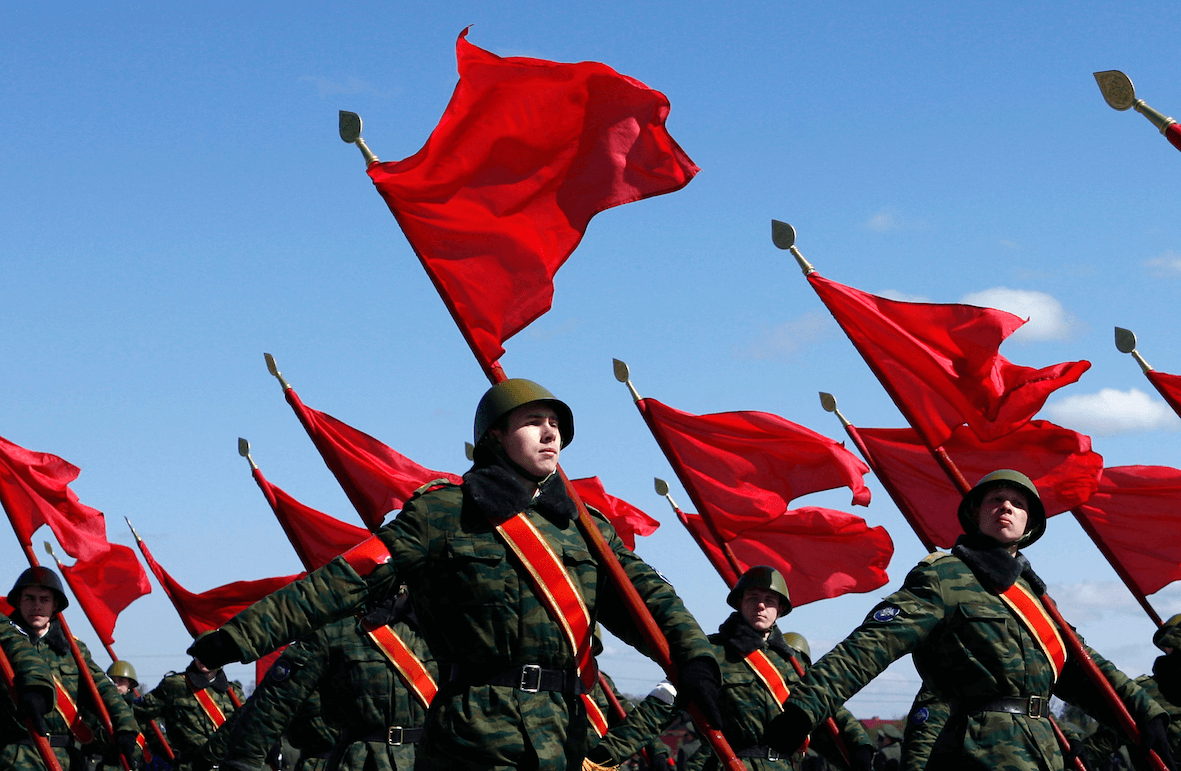There’s a persistent narrative floating around Western discourse that fundamentally misunderstands the nature of Russia’s current predicament. You’ll find it in op-ed pages and cable news debates, usually framed as strategic realism: Ukraine simply cannot outlast Russia in a prolonged conflict because Russians inherit the Soviet Union’s legendary capacity for absorbing massive casualties. The logic seems superficially sound—if Stalin’s forces could endure the meat grinder of World War II, surely Putin’s can do the same against Ukraine.
This argument isn’t just wrong; it’s dangerously backwards. What’s troubling is how it simultaneously inflates Russian capabilities while erasing Ukrainian agency and historical experience. The truth is more complex and, frankly, more encouraging for those hoping to see Ukrainian sovereignty preserved.
Ukraine’s Forgotten Legacy
The most glaring flaw in this reasoning is its historical amnesia. When analysts invoke Soviet wartime resilience, they’re inadvertently making Ukraine’s case, not Russia’s. During the Great Patriotic War, Ukrainian territories bore the brunt of Nazi occupation and systematic destruction. Per capita, Ukrainian losses dwarfed those of Russia proper. The fierce resistance that became part of Soviet mythology? Much of it happened on Ukrainian soil, fought by Ukrainian hands.
This isn’t mere historical pedantry—it reveals something crucial about contemporary dynamics. If we’re going to discuss inherited determination and willingness to sacrifice for national survival, Ukraine has a stronger claim to that legacy than Russia does. The current defenders of Kyiv and Kharkiv aren’t drawing on some foreign tradition; they’re continuing one that runs through their own bloodlines.
The Information Revolution Changes Everything
But there’s a deeper problem with the World War II analogy: it ignores how fundamentally the information landscape has shifted. Stalin could maintain his grip on Soviet society partly because he controlled every radio tower, every printing press, every channel through which information flowed. His propaganda wasn’t just pervasive—it was often the only narrative available to ordinary citizens.
Putin enjoys no such luxury. Despite aggressive censorship and state media dominance, the internet has shattered the government’s information monopoly. Russian citizens can access alternative viewpoints, even if they must do so carefully and privately. This creates a completely different political dynamic. Where Stalin could mobilize millions through a combination of genuine existential threat and total information control, Putin faces a population that—regardless of what they say in public—often knows the official story doesn’t add up.
The evidence for this constraint is everywhere. Most tellingly, Putin has steadfastly avoided general conscription, despite suffering hundreds of thousands of casualties. Instead, he’s relied on expensive mercenary-style recruitment, offering inflated salaries that have contributed to dangerous inflation. When even that approach began straining the economy, Putin felt compelled to publicly promise military budget reductions—hardly the behavior of a leader confident in his population’s unlimited tolerance for sacrifice.
Economic Vulnerabilities Run Deeper
The Soviet comparison becomes even more problematic when we examine the economic foundations. The USSR’s collapse wasn’t just about military overstretch in Afghanistan—it was fundamentally about economic brittleness disguised as strength. The Soviet economy’s dependence on energy exports made it catastrophically vulnerable when oil prices crashed in the 1980s. Without technological innovation or economic diversification to fall back on, the system simply couldn’t adapt.
Russia has learned remarkably little from this experience. If anything, its economy is more vulnerable now than the Soviet Union’s was then. Modern Russia lacks the industrial diversity that the various Soviet republics once provided. The best energy fields—those in the Caucasus that were relatively easy to extract and close to markets—now belong to independent nations like Azerbaijan, or are running thin. What remains requires increasingly expensive extraction from remote Siberian locations, driving up costs just as Western sanctions have devastated demand.
Strikingly, Russia faces this crisis without the economic cushion that the broader Soviet Union might have provided. The technological centers, the agricultural breadbaskets, the industrial capacity—much of what made the USSR formidable was distributed across republics that are now independent nations. Many of those same nations are now actively supporting Ukraine’s resistance.
The Imperial Reckoning
This brings us to perhaps the most fundamental misunderstanding embedded in the “Russia as Soviet successor” narrative. The Soviet Union wasn’t really a unified nation-state—it was an empire, with Russia as the dominant imperial power extracting resources and labor from subordinate republics. When that empire dissolved, Russia lost access to much of what had made it appear strong.
The current war isn’t happening in a vacuum. Russia’s aggression toward Ukraine, its threats against the Baltics, its general belligerence toward former Soviet states—these reflect a desperate attempt to reclaim what was lost. But here’s the crucial point: those other nations chose independence for good reason. They’re not eager to return to Moscow’s orbit, and they remember exactly why they left.
Misreading the Moment
What we’re witnessing isn’t Russian strength drawing on Soviet reserves—it’s Russian weakness attempting to compensate for post-Soviet decline. The myth of unlimited Russian resilience doesn’t just misread history; it misses the most important story of our time. A declining imperial power is lashing out at neighbors who represent everything it has lost: economic dynamism, technological innovation, political legitimacy, and genuine popular support.
None of this suggests that Russia will simply collapse tomorrow, or that the war will end quickly. Declining powers can be especially dangerous, and Putin’s regime retains significant coercive capacity. But the idea that Russia can simply outlast Ukraine through superior endurance fundamentally misunderstands the balance of forces at play.
Ukraine isn’t just fighting for territory—it’s fighting for the right to exist as an independent nation. Russia is fighting to reclaim an empire that its former subjects chose to leave. History suggests which motivation tends to prove more durable.
